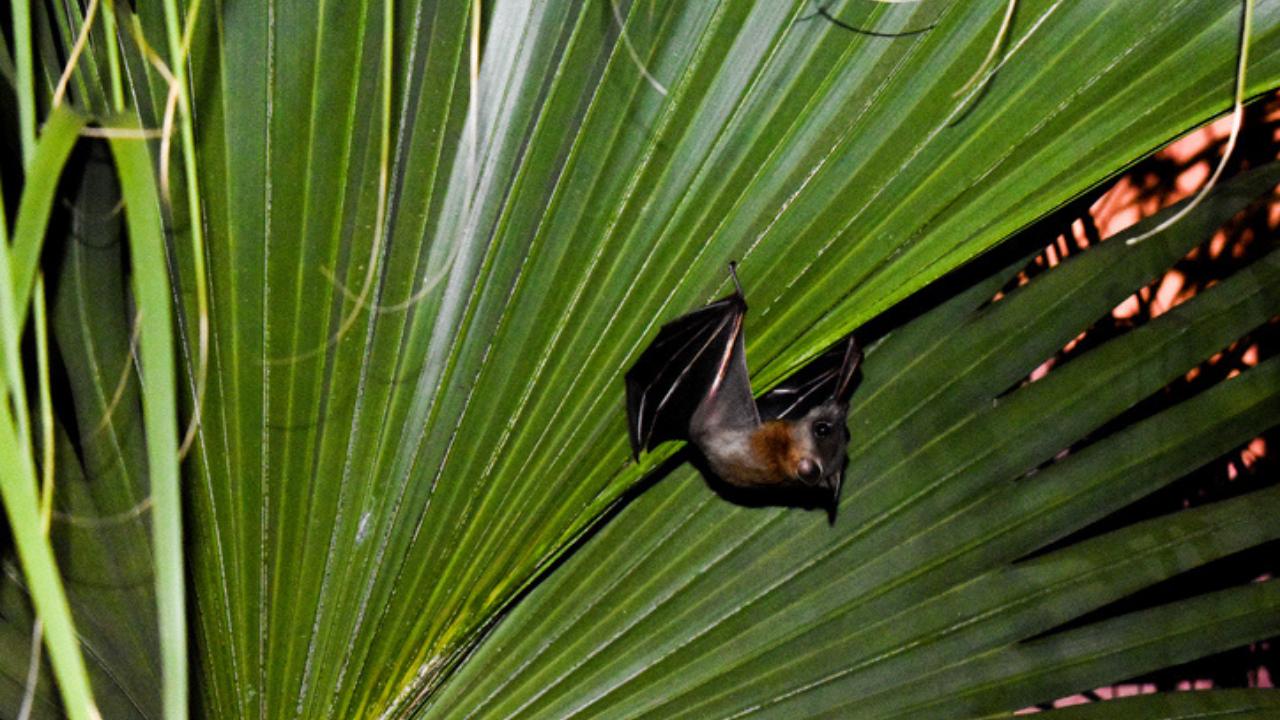The test, developed by researchers at Imperial College London, could be adapted for other mammals. This could help researchers understand the potential for wildlife to act as reservoirs of this and other risky viruses

Image for representation: iStock
A SARS-CoV-2 test for bats using faecal samples could boost understanding of how wild animals transmit viruses to other animals and humans.
ADVERTISEMENT
The test, developed by researchers at Imperial College London, could be adapted for other mammals. This could help researchers understand the potential for wildlife to act as reservoirs of this and other risky viruses.
The innovation, published in the journal Conservation Practice & Policy, may also help conservation efforts. Currently, bats that are in the care of people who have tested positive for SARS-CoV-2 must be isolated in case they have contracted the virus and until testing demonstrates they are free of the virus.
Presently, animals have to be handled to be tested for SARS-CoV-2 or other viruses via a swab or blood sample. The researchers believe the new poo test could be adapted to create a rapid, accurate and practical test for coronaviruses in a variety of settings - from individual animals in care to population testing.
For example, they could sample the guano from bat caves or leavings from other mammals that may be in frequent contact with bat populations.
The team's test protocol was trialled with several captive and around 250 wild bats as part of a larger study. They discovered none were positive for SARS-CoV-2, although some were positive for other coronaviruses.
"There is a growing need to understand the potential risk of human to wildlife transmission," said Scott Jones, from Department of Life Sciences at Imperial.
While SARS-CoV-2 and other similar viruses, including SARS-CoV-1 and MERS, are thought to have first arisen in bats, they appear to use an intermediate mammal host before they can be transmitted to humans (civets and camels for SARS-CoV-1 and MERS respectively).
This means many wild animals are potential reservoirs of viruses - SARS-CoV-2 has also been detected in animals ranging from house cats and dogs to deer and gorillas.
A simple faecal test could allow researchers to conduct study on wild populations more safely and efficiently than using blood tests or swabbing, and identify the presence of any viruses of concern.
"Not only will our new testing protocol help bats, but it will also help humans by mitigating against spillover of SARS-CoV-2 to other wild animals. We designed it with the best interests of both the wildlife and their rehabilitators in mind, said Professor Vincent Savolainen, from the Department of Life Sciences at Imperial.
This story has been sourced from a third party syndicated feed, agencies. Mid-day accepts no responsibility or liability for its dependability, trustworthiness, reliability and data of the text. Mid-day management/mid-day.com reserves the sole right to alter, delete or remove (without notice) the content in its absolute discretion for any reason whatsoever.
 Subscribe today by clicking the link and stay updated with the latest news!" Click here!
Subscribe today by clicking the link and stay updated with the latest news!" Click here!







